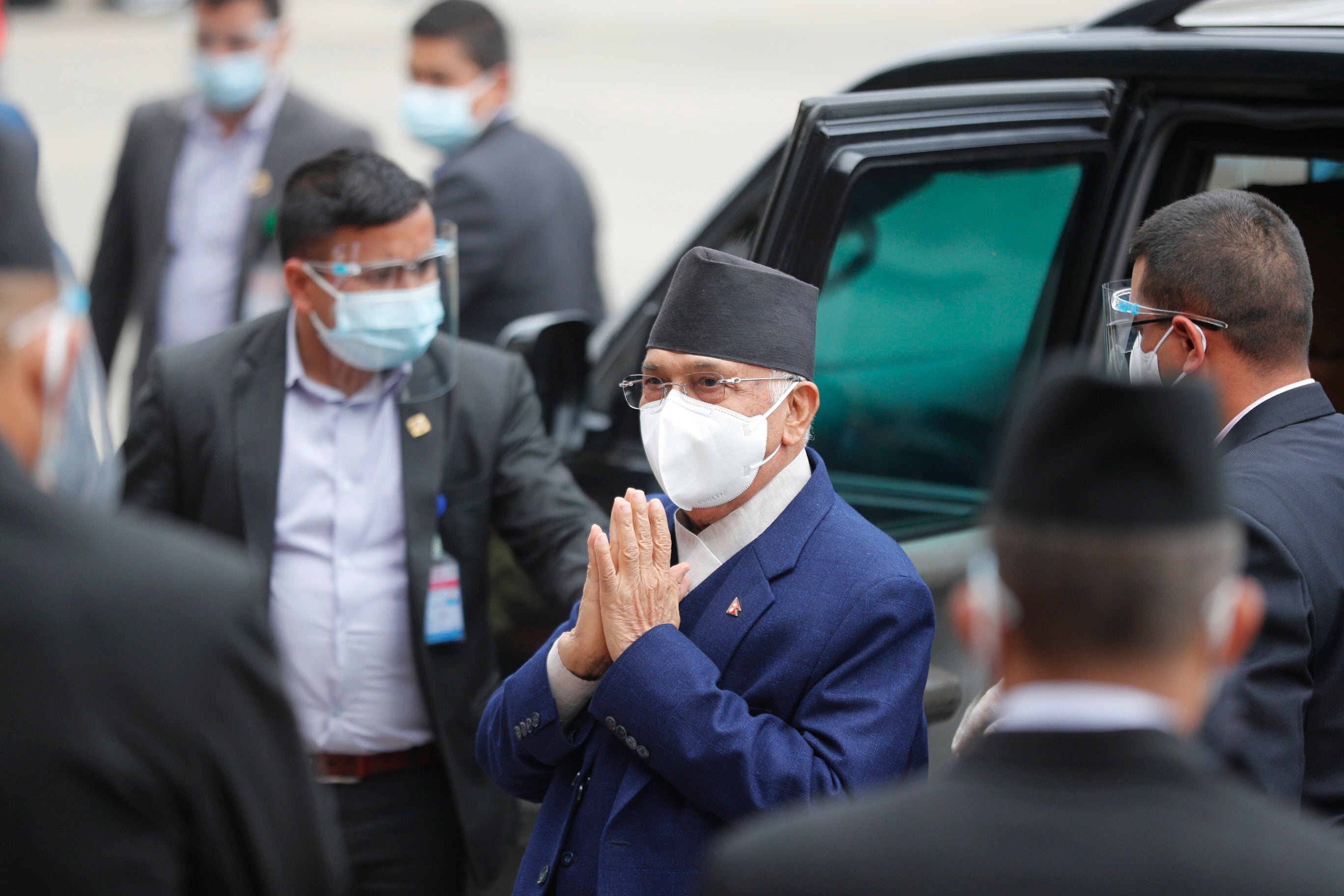Nepal president dissolves Parliament; elections in November
Nepal’s president has dissolved Parliament and announced fresh elections after the prime minister, who was heading a minority government and was unlikely to secure a vote of confidence in the chamber, recommended the move

Your support helps us to tell the story
From reproductive rights to climate change to Big Tech, The Independent is on the ground when the story is developing. Whether it's investigating the financials of Elon Musk's pro-Trump PAC or producing our latest documentary, 'The A Word', which shines a light on the American women fighting for reproductive rights, we know how important it is to parse out the facts from the messaging.
At such a critical moment in US history, we need reporters on the ground. Your donation allows us to keep sending journalists to speak to both sides of the story.
The Independent is trusted by Americans across the entire political spectrum. And unlike many other quality news outlets, we choose not to lock Americans out of our reporting and analysis with paywalls. We believe quality journalism should be available to everyone, paid for by those who can afford it.
Your support makes all the difference.Nepal’s president dissolved Parliament and announced fresh elections on Saturday after the prime minister, who was heading a minority government and was unlikely to secure a vote of confidence in the chamber, recommended the move.
A notice issued by President Bidya Devi Bhandari’s office set the elections for Nov. 12 and 19.
Nepal has been grappling with a political crisis at the same time it's struggling with a coronavirus surge and record numbers of daily infections and deaths, amid acute shortages of hospital beds, medication and oxygen.
Last year, Prime Minister Khadga Prasad Oli dissolved Parliament on his own due to feuds within his ruling Nepal Communist Party. However, several petitions were filed at the Supreme Court and the judges ordered Parliament to be reinstated.
The latest decision also is likely to be challenged in court and a decision could take weeks.
Oli had lost a vote of confidence earlier this month after a faction of his party refused to support him. He was again appointed to head a minority government but needed the support of half the lawmakers within a month to continue. It was, however, unlikely Oli could muster the vote.
He became prime minister after his Nepal Communist Party won two-thirds of seats in the 2017 parliamentary election. The strong showing gave hope of a stable, long-lasting government, but his party split earlier this year over differences concerning party leadership.
Oli has been criticized for giving too much attention to the party squabbles instead of the pandemic.